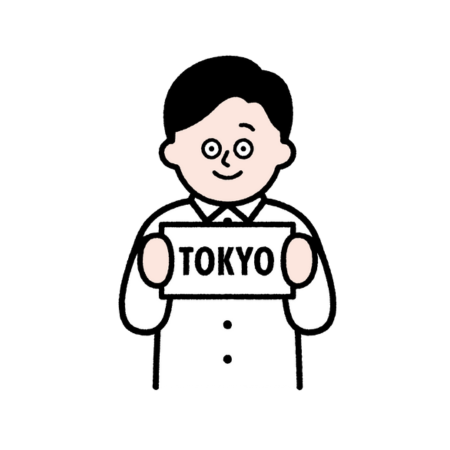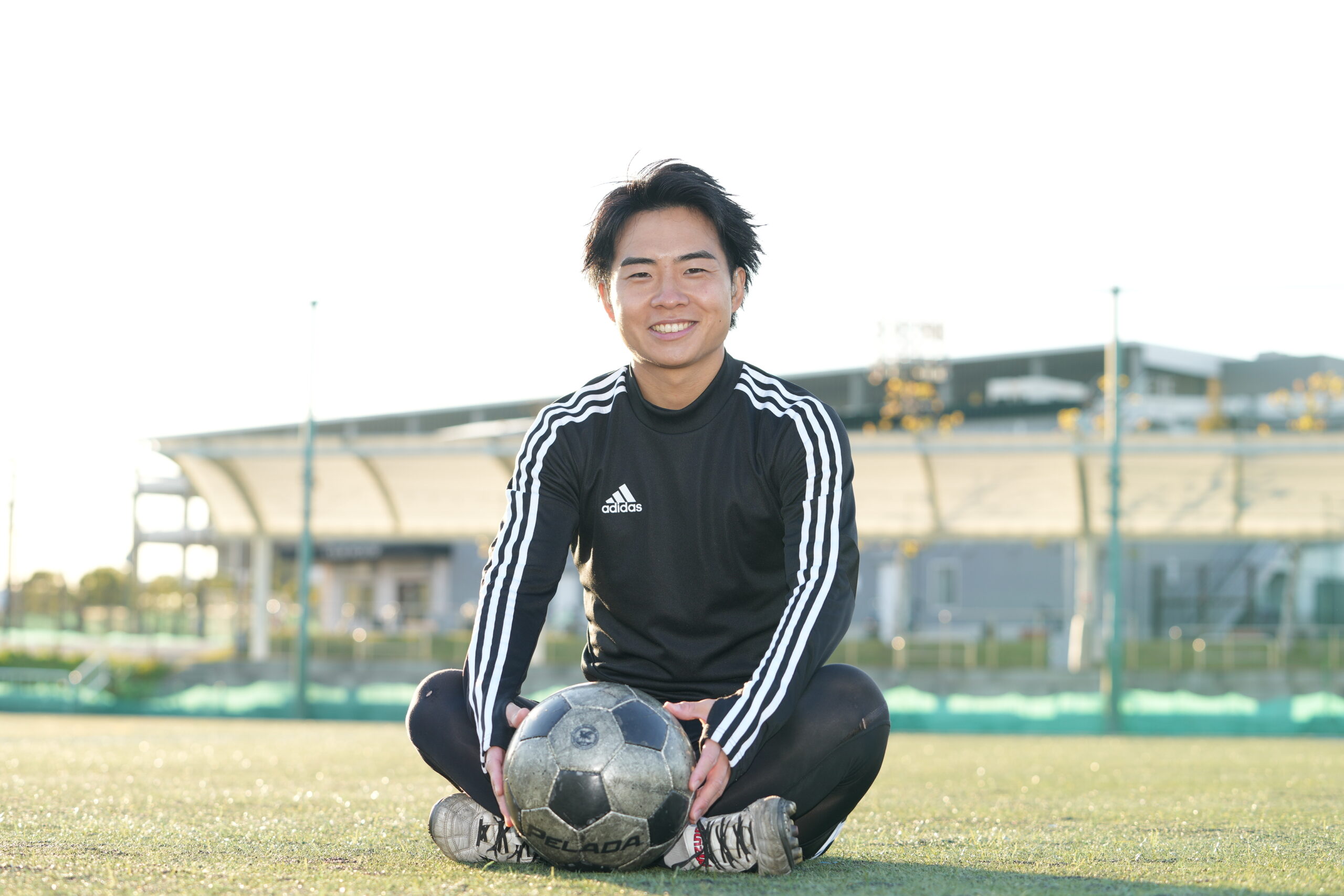
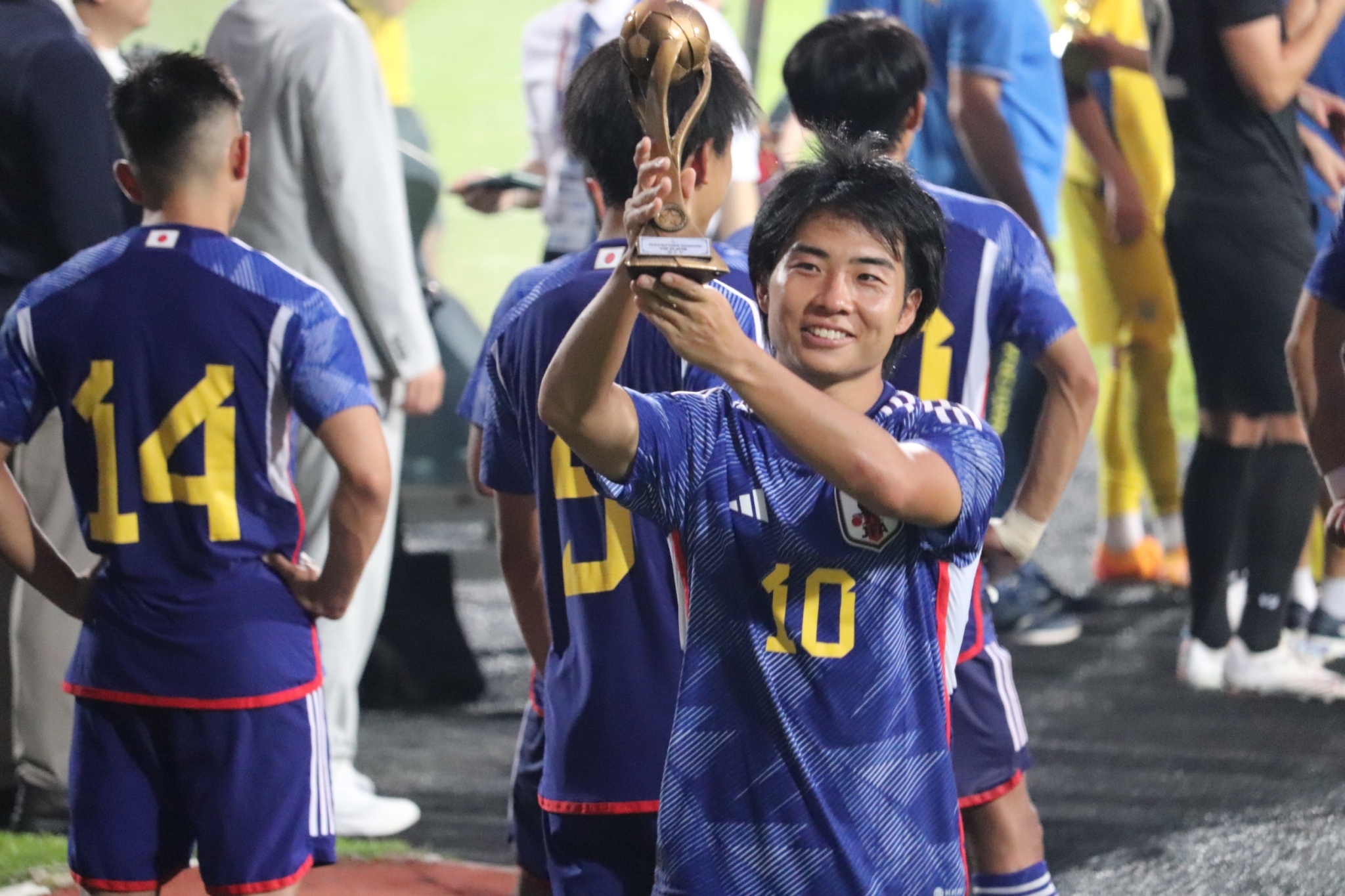
Takuya Okada
Born in 1996 in Saitama Prefecture. He is a member of Koshigaya Football Club.
He was selected for Japan’s Deaf Soccer national team when he was a student at Chuo Gakuin University, where he was an ace player with his high skills and abilities, and was named MVP of the 2023 World Cup, Japan’s first international tournament in five years, for his brilliant performance, including a hat trick in extra time. At the Tokyo 2025 Deaflympics, which will be held in Tokyo for the first time, he will lead the Japanese national team in its quest to reach the top of the world, which is now just one win away.
Taking Inspiration from Neymar’s Plays and Moves
–Please tell us how you got started in soccer.
When I was in the fourth grade of elementary school, a friend invited me to join. Before that, I had been swimming and had no interest in soccer, but I was hooked right away. Soccer allows you to connect with everyone with just one ball, and I was attracted to the idea of aiming for the goal as a team.
–When you started playing soccer, what position did you play?
I played goalkeeper for a year until I was in the fifth grade, but I had no sense for that (bitter laugh). So my brother became the goalkeeper and I moved to an offensive position.
–Do you have a favorite player or a favorite team?
One of my favorite players for a long time was Neymar of the Brazilian national team. I like players who are fun to watch and I always used to refer to and imitate Neymar’s plays and moves. My favorite team is FC Barcelona. When I started playing soccer, Ronaldinho was in his prime and played at that team. He was also a lot of fun to watch, and Neymar later joined FC Barcelona, so I’ve been watching that team for a long time.
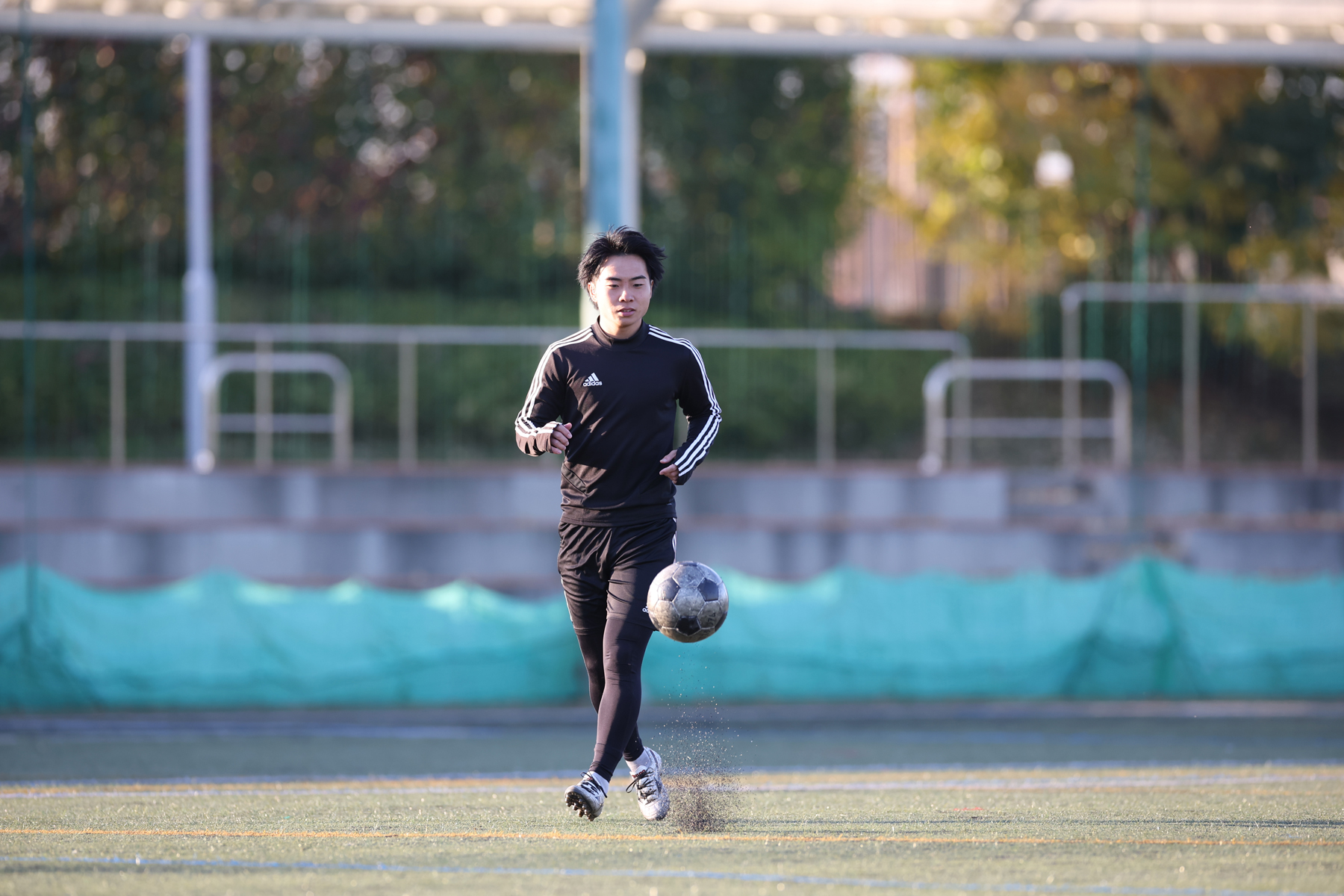
–What made you decide to try Deaf Soccer?
I was invited by my teammate Kodai Hayashi, who is currently a member of Japan’s Deaf Soccer national team, when I was a sophomore in college. I had never heard of Deaf Soccer before then, and this was the first time I got involved. It was a time when the Japanese Deaf Soccer national team was working to strengthen its team for the 2016 World Cup in Italy, and I became involved in national team activities as part of that effort.
The Importance of Mentality Learned from a Former Professional Athlete
–Are there any turning points in your athletic career so far?
Until three years ago, I was a member of Aventura Kawaguchi, a team from Kawaguchi City, Saitama Prefecture, which was aiming to enter the J-League. There were former professional players on the team at the time, and I was shocked by the difference in mental attitude, mindset, and physicality. At that time, I was given the advice, “There are limits to how much you can develop your foot skills, but there are no limits to your physicality, so you should definitely work on that”. I believe that the experience of being in an environment with former professional players was a major turning point for me.
–What exactly is the difference in mentality?
In the J-League, you play in front of a large audience, so if you make a mistake, the audience boos you. And you have to make another play. I was told that if I did not have the mentality to keep playing with a level head, it would affect my overall play. At Aventura Kawaguchi, I played with Hiroto Sakai, who had played for J3 team Vanlare Hachinohe, and he really influenced me mentally. He said to me, “If you don’t have a solid mental foundation, your game won’t change no matter where you go,” which has been firmly engraved in my mind and serves as a warning.
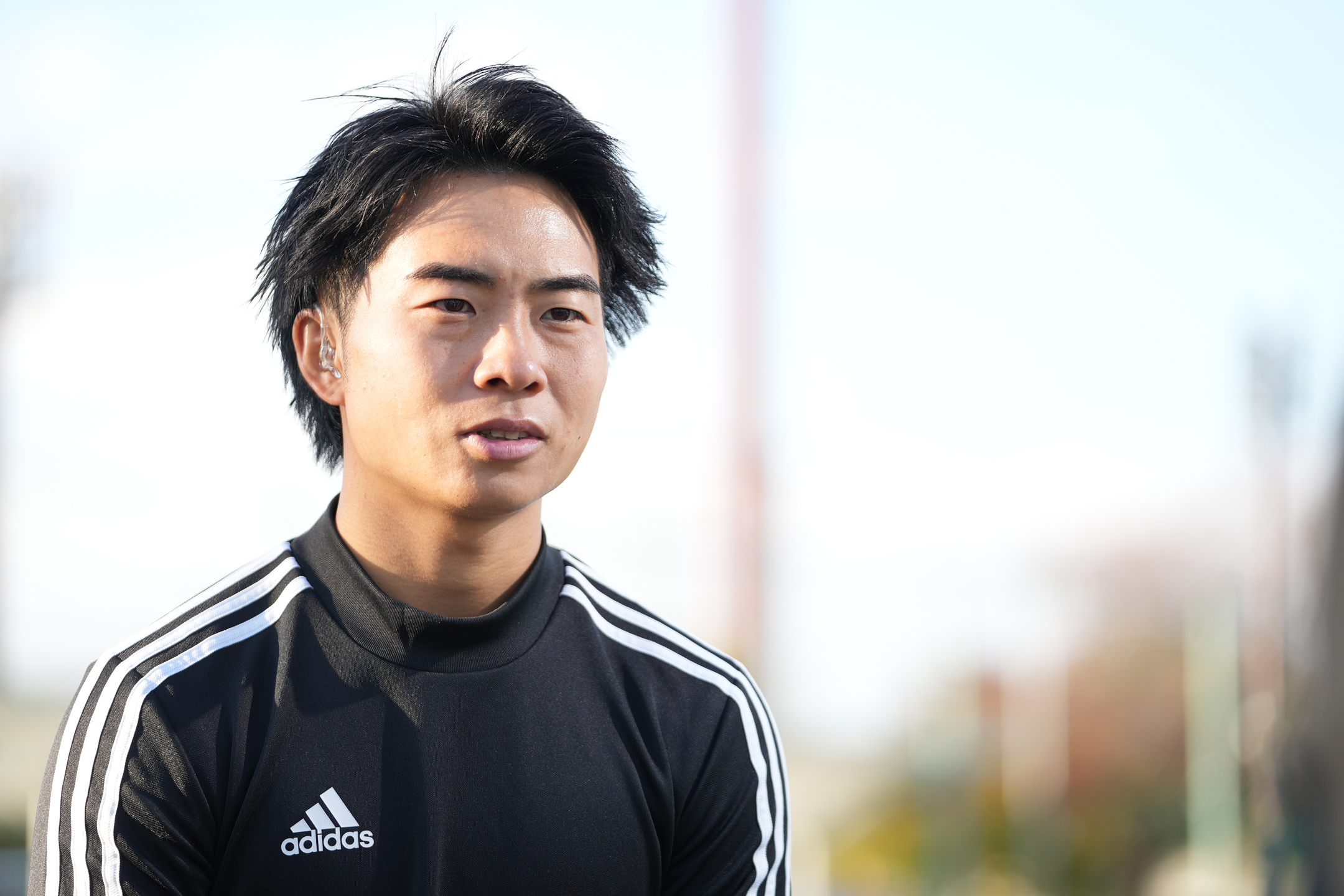
These words from a former professional player are firmly engraved in his mind.
–Do you do anything to strengthen your mentality?
The foundation of the mind differs in strength from person to person, and I believe that this is something that can only be created through the accumulation of experience. When I was in college, practice was tough and I almost failed at soccer many times. However, I believe that the accumulation of overcoming hard and unpleasant things without running away from them will strengthen my mentality.
Confidence Gained in the Game Against World Champions Turkey
–I think you had some tough moments at the World Cup, where you finished runner-up. Were you able to maintain your composure in those situations?
To be honest, it was tough. Especially when we lost our second group game to Iran and our third to France, two losses in a row, it was very tough mentally. I felt frustrated that I could not tell my fellow players what they could have done better, and I was frustrated by my lack of decisiveness in deciding the game. However, the members of the Japanese national team have a strong mentality, so we were able to quickly inspire each other and change our minds, saying, “It will be great to play Turkey, the world champion, in the next round (the first round of the final tournament).
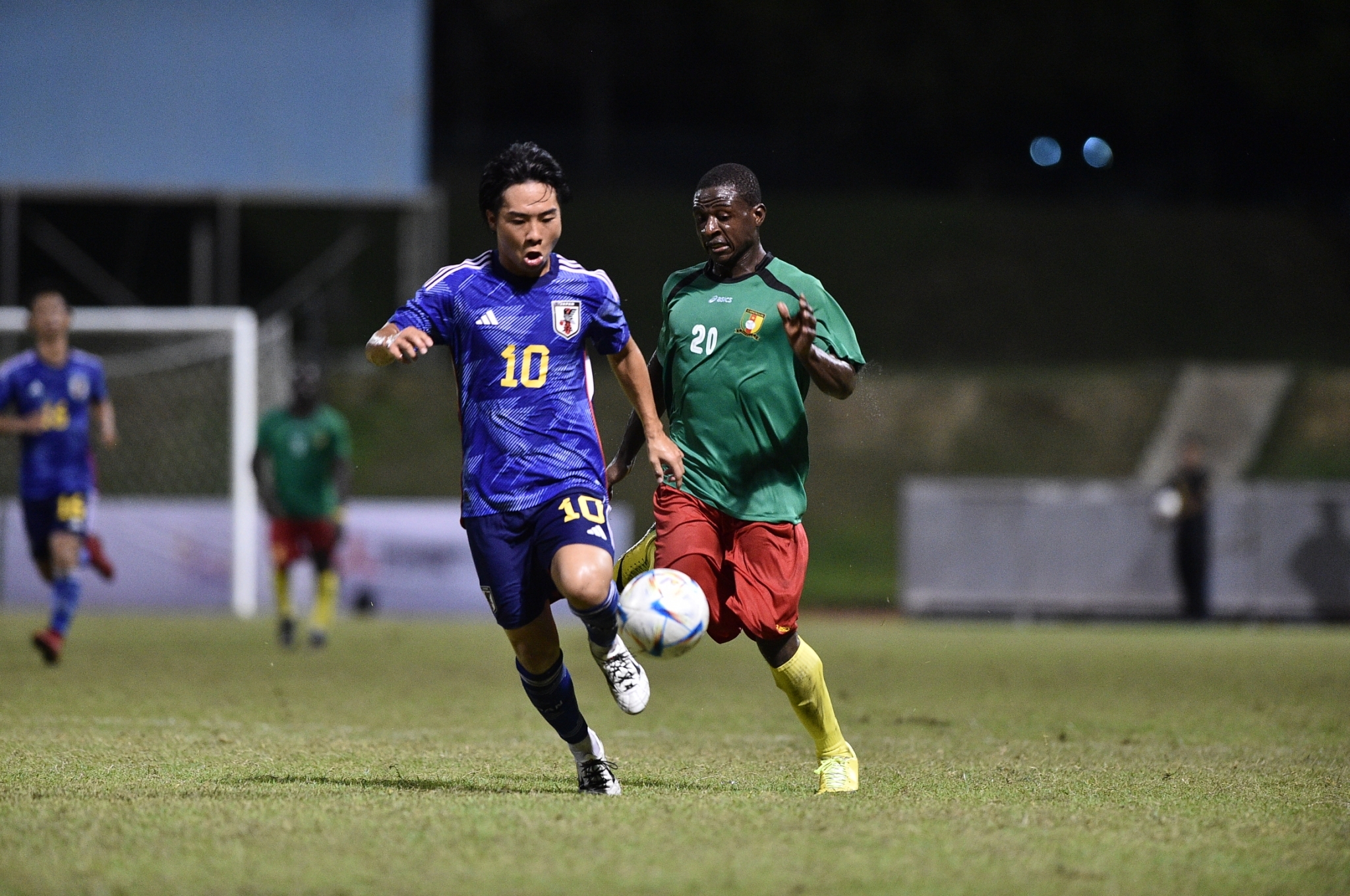
©JDFA
–In the four games of the final tournament starting with the game against Turkey, you exploded with six goals. What was the reason for this?
The goal I scored at the end of the game against Turkey gave me a lot of confidence. In the second and third games of the group league, I didn’t score a single goal, and I felt responsible for my own inadequacy. However, when I scored a goal against Turkey, the world champion, my confidence overflowed, and my self-esteem increased to the point where I forgot about the previous games. I think I was able to maintain that confidence, which led to my explosive scoring ability.
— In the semi-final against Egypt, you scored a hat trick only during overtime.
It was the first time for me to do that. I even apologized for being too late to score the goal (laughs). In that game, the man-marking on me was so tight that even if I moved a little, they would follow me. I thought it was just a game of feelings to see who would be the first to get exhausted by moving around. Then, in overtime, my opponent was too exhausted to keep up with me, so it was like I won the game in one fell swoop.
–In the final, you lost to Ukraine, but you were very successful yourself, scoring 7 goals and being the MVP. How do you feel the tournament was?
I am very happy that we were able to rewrite the history of Japanese men’s deaf soccer. However, as a result, I was more disappointed than happy. It will probably be the most memorable in my future career…. This was the first international competition for more than half of the members who participated in our team. Many of the players were inexperienced, and it was the first international tournament in five years after the Corona Disaster, and the team was full of wounds in the finals. There were many times when I could feel the team’s growth, but looking back, there were also times when I thought, “We could have done more…” We were one step closer to becoming the best in the world, and in that sense, I think this tournament was very memorable for me.
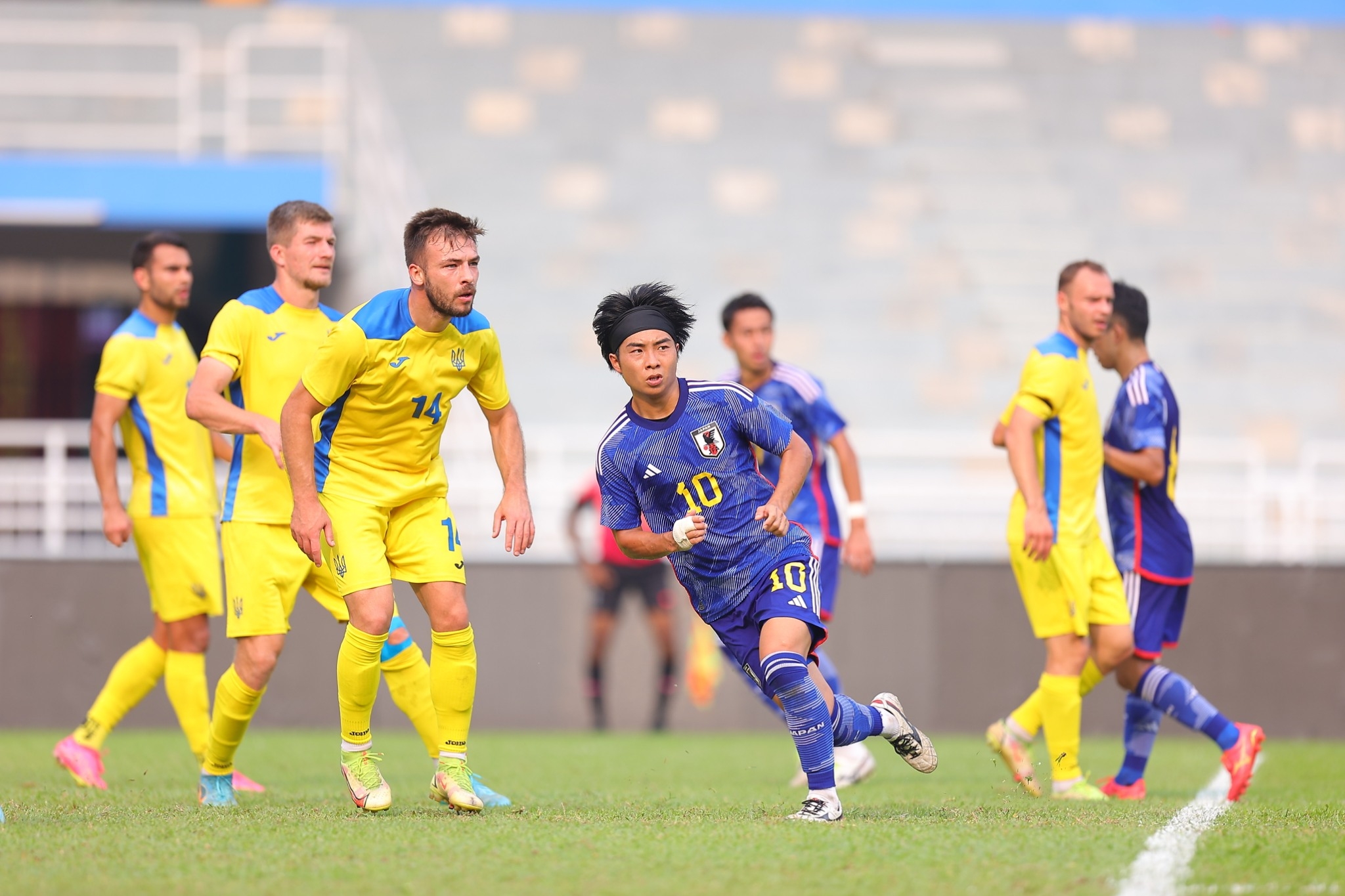
©JDFA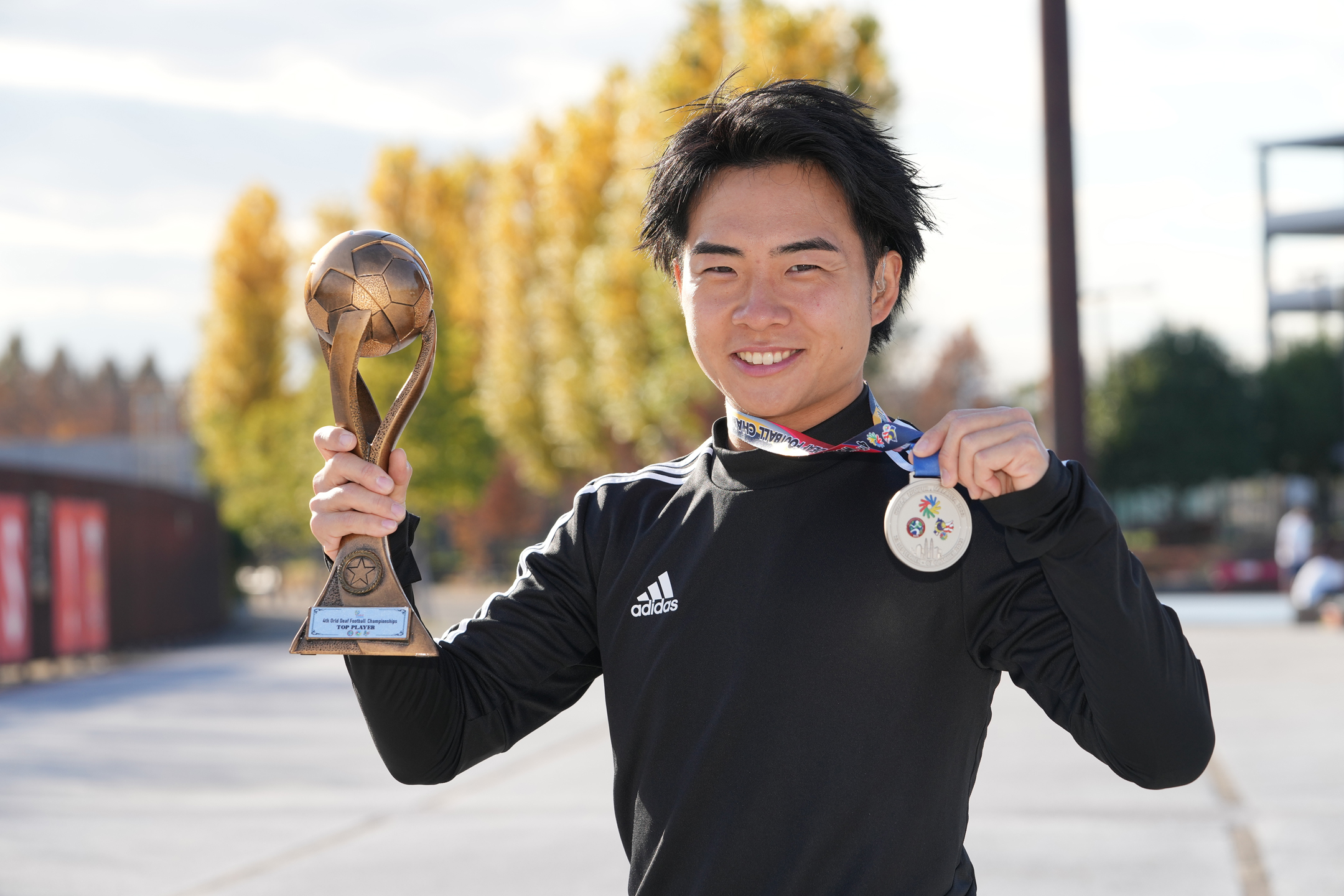
My Thoughts on the Deaflympics Have Changed Dramatically
–I think you will be in a position to be marked both individually and as a team at the Tokyo 2025 Deaflympics. What do you want to improve in the future?
At the training camp in November, I had the head of the Shimizu S-Pulse training department analyze the World Cup games against Egypt and Ukraine, and he told me that I did not have enough slow and fast movement and dribbling. As an individual, I would like to improve such movements. As for the team, experience is the most important thing. I feel that we should gain experience playing overseas at least once a year. The other thing we need to do is to raise our level by participating in games with our respective teams. I want each player to be the best player on his team.
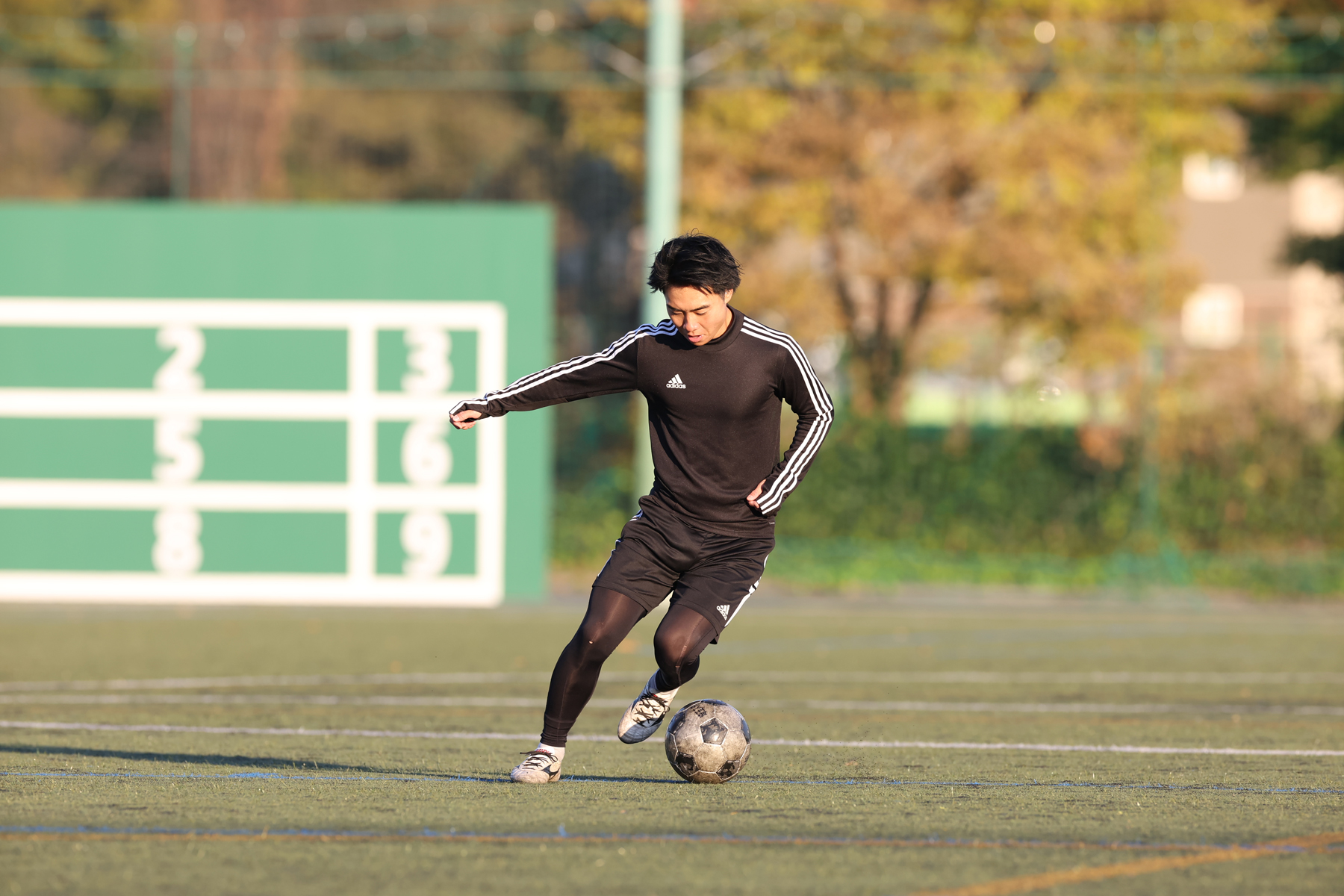
–At the Samsung 2017 Deaflympics Japan national team won a game for first time, but you were eliminated from the preliminary league. How do you feel about the Deaflympics?
In the match in which we won our first victory, I was injured and had to leave halfway through. I can say this now, but at the time I was a university student and didn’t understand the value of the Deaflympics or Deaf soccer, so I didn’t have deep feelings for that. However, after becoming a member of society, I had the opportunity to give lectures as a DeafAthlete, and I heard various opinions and values from retired people. That’s when I regretted that “I should have cherished that time (Samsung 2017 Games) more…. ” Since then, my feelings toward the Deaflympics have changed dramatically, and I now feel a sense of responsibility as well.
–What are you looking forward to and hoping for at the Tokyo 2025 Deaflympics?
After finishing second in the World Cup this time, I received many contacts and words of encouragement from many people. Many people have contacted me saying that they want to see the Deaflympics, and I hope to fill the auditorium at J Village (Fukushima Prefecture) with people like that. I have also been asked by overseas athletes to tell them about good Japanese food and places to visit in Japan. I hope to have a good time on the field and a good time off it.
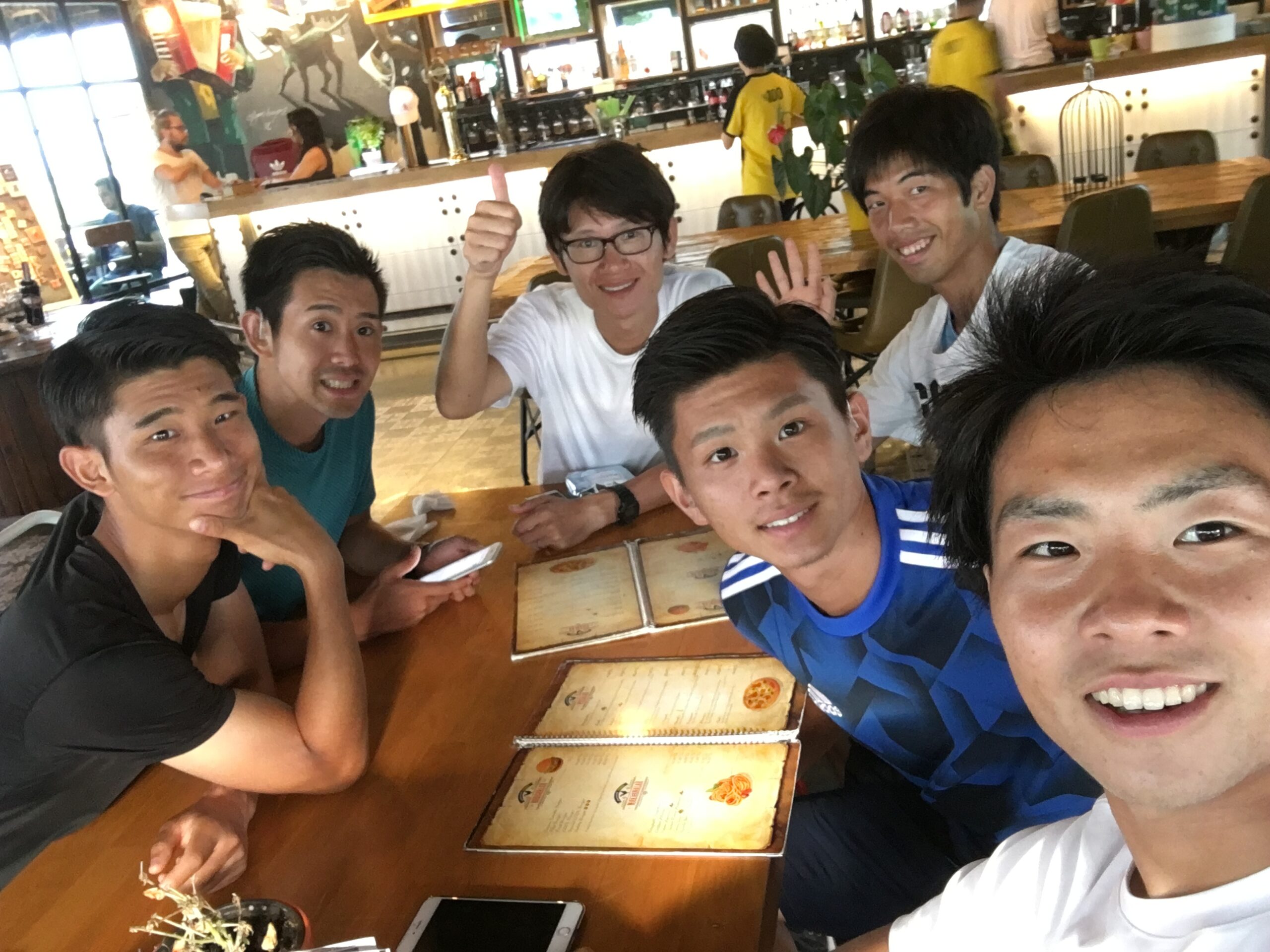
Director Hayato Uematsu, who leads the current national team, is also pictured. (Center of photo. He was with the team as a coach at the time).
Enjoy the World of Alone by Riding the Car or the Motorcycles
–Please tell us about the personal side of you, Okada-san. How do you spend your days off?
During the season, I practice 5 days a week and have the other 2 days off. I go to the osteopathic clinic for care one day and spend the other day alone. I have a motorcycle and a car, so I often go driving or touring alone and spend time watching Netflix or YouTube where I go. It’s nice to relax with the sunroof of the car open.
Off season I spend time with my family. My twin brother had a daughter, so I go to see her.
–What kind of videos do you watch?
On Netflix, I watch a lot of anime such as “ONE PIECE,” and on YouTube, I am addicted to the investment variety show “Tiger Funding”. I like the atmosphere, they really take it seriously (laughs). I also often watch videos of famous players from around the world.
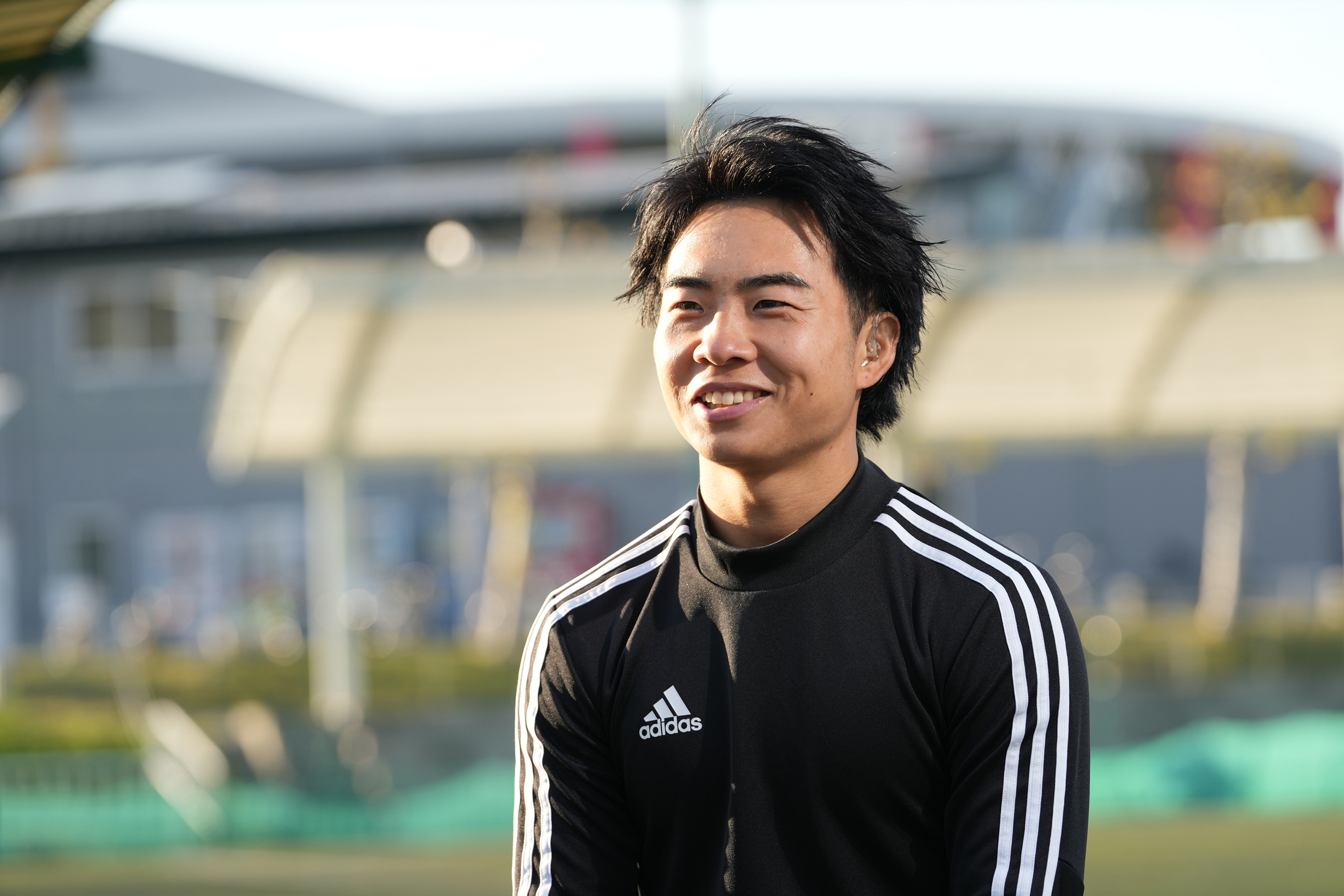
–What do you do when you spend time with your family?
We go out to eat or go on outings by car. The other day we had lunch at a delicious bakery in Shinjuku. Since becoming a member of the Japan national team, I have become acutely aware of the importance of family. I honestly didn’t have that much before that (bitter laugh), but thanks to the support of all my family members, I think I have been able to come this far, and I am now very grateful for that.
–How do you analyze your own personality?
I have an “uncompromising” personality when it comes to the things I love to do. I have a weekly routine, but I always have practice from Tuesday to Friday, so I refuse any invitations on those days. Other than that, I spend my days putting soccer first, and I think that my uncompromising approach to even the smallest things led to my performance in the recent World Cup.
I also like motorcycles and customize them. When I ride my bike, I can be alone in my own world, and it is great to feel the wind in my face. The other day I went to Karuizawa and the Hakone Turnpike.
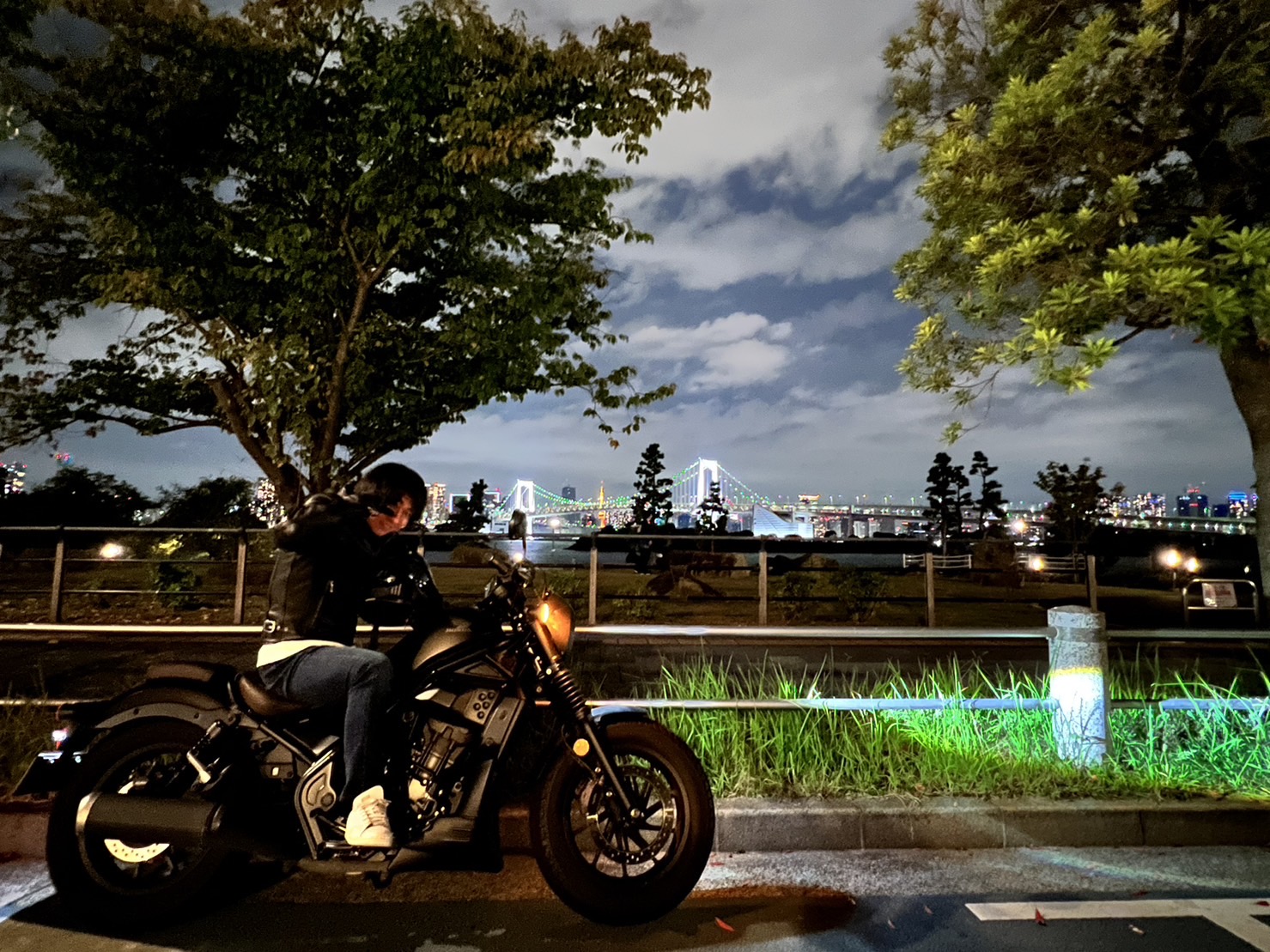
Who Does He Recommend as the Player in the Japanese National Team…?
–You have a twin brother (Yuya), do you have similar personalities?
No, we are not alike at all (laugh). I go at my own pace, but my brother is very serious. He even turns down all invitations to play during the off-season. I think my brother’s personality is like my father’s. My father used to be a bicycle racer and was active on the front lines as an athlete, so I think we share that kind of seriousness.
–If you had to recommend one player from the Japan national team, who would it be?
I don’t really want to say one person… (laughs), but I would have to say my older brother Yuya Okada and Kodai Hayashi.
Yuya is really a versatile player who can do anything. He can play any position at a high level, has been captain of the national team, and has a strong personality.
Kodai played in Germany for several years. Not just anyone can do that and he did it overcoming the language barrier, so I can respect him a lot. In fact, he teaches me about European playing styles and information, which is useful for the current Japan team. He is also very aggressive in his play and often scores goals thanks to him.
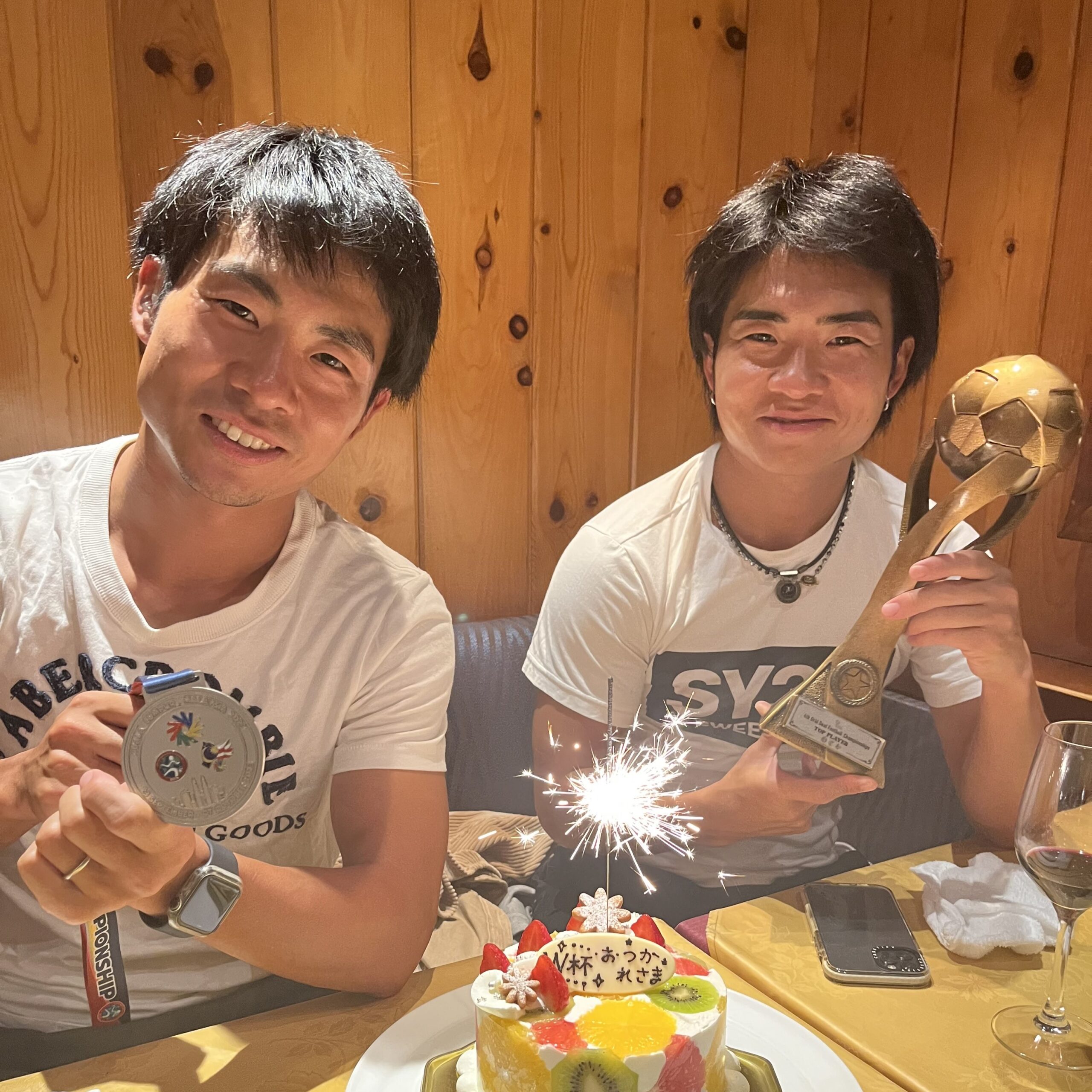
–What do you envision your career after you have completed your career as an athlete?
I am now working for a foreign company and studying English. In addition to that, I have participated in international competitions. Eventually I would like to teach soccer to children, whether they can hear or not, and I hope to be able to use my English to be an interpreter on the field of deaf soccer. I would also like to use my sign language and English skills to learn international sign language, which would broaden my options, and I think such a career would be good.
–Finally, please give a message to those who are looking forward to the Tokyo 2025 Deaflympics.
In 2025, Japan will host the Deaflympics for the first time.
The Deaflympics will feature not only Deaf soccer but also many other Deaf sports. Let’s get excited together so that everyone in Japan can share in the moment of joy!
Please give us lots of support!
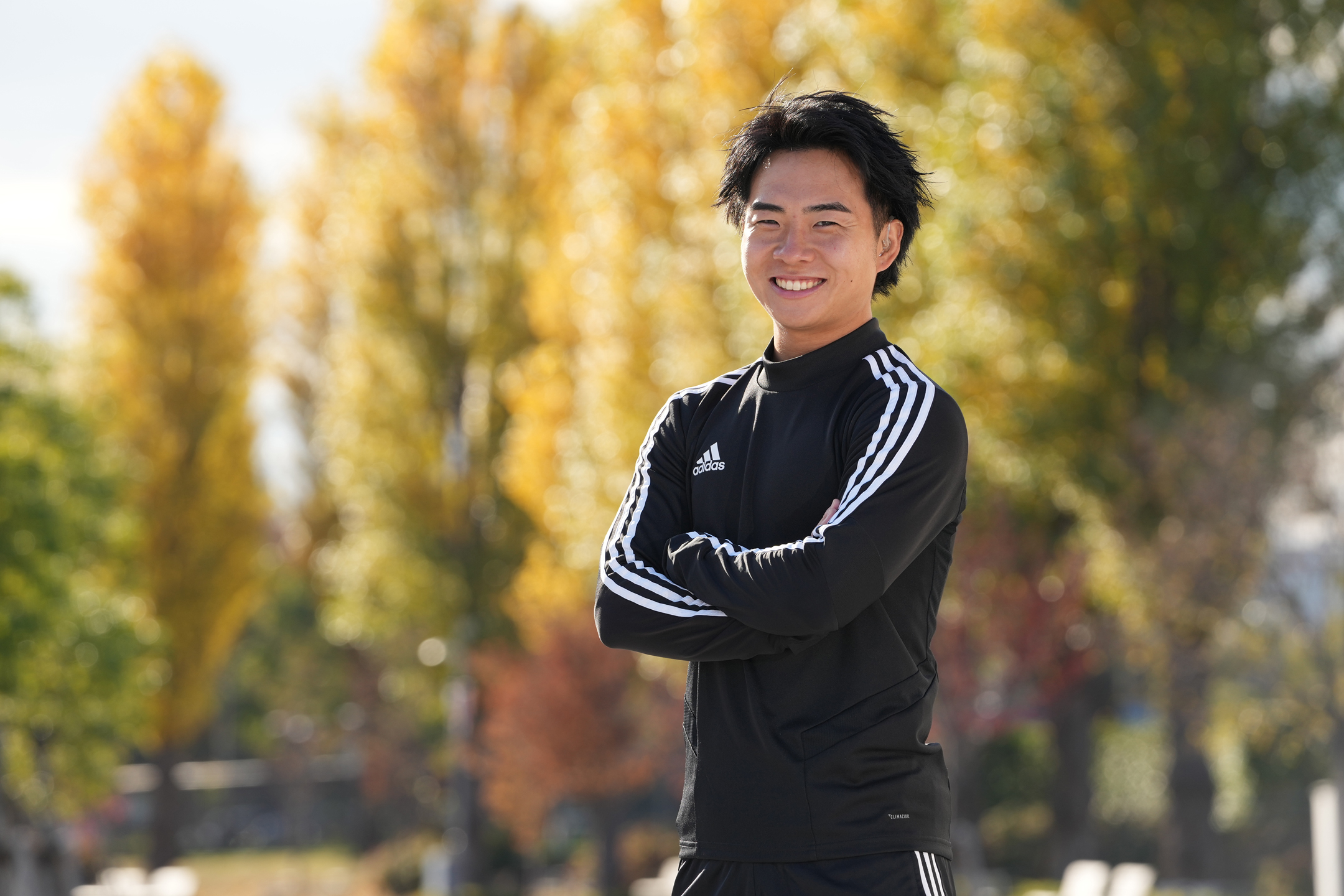
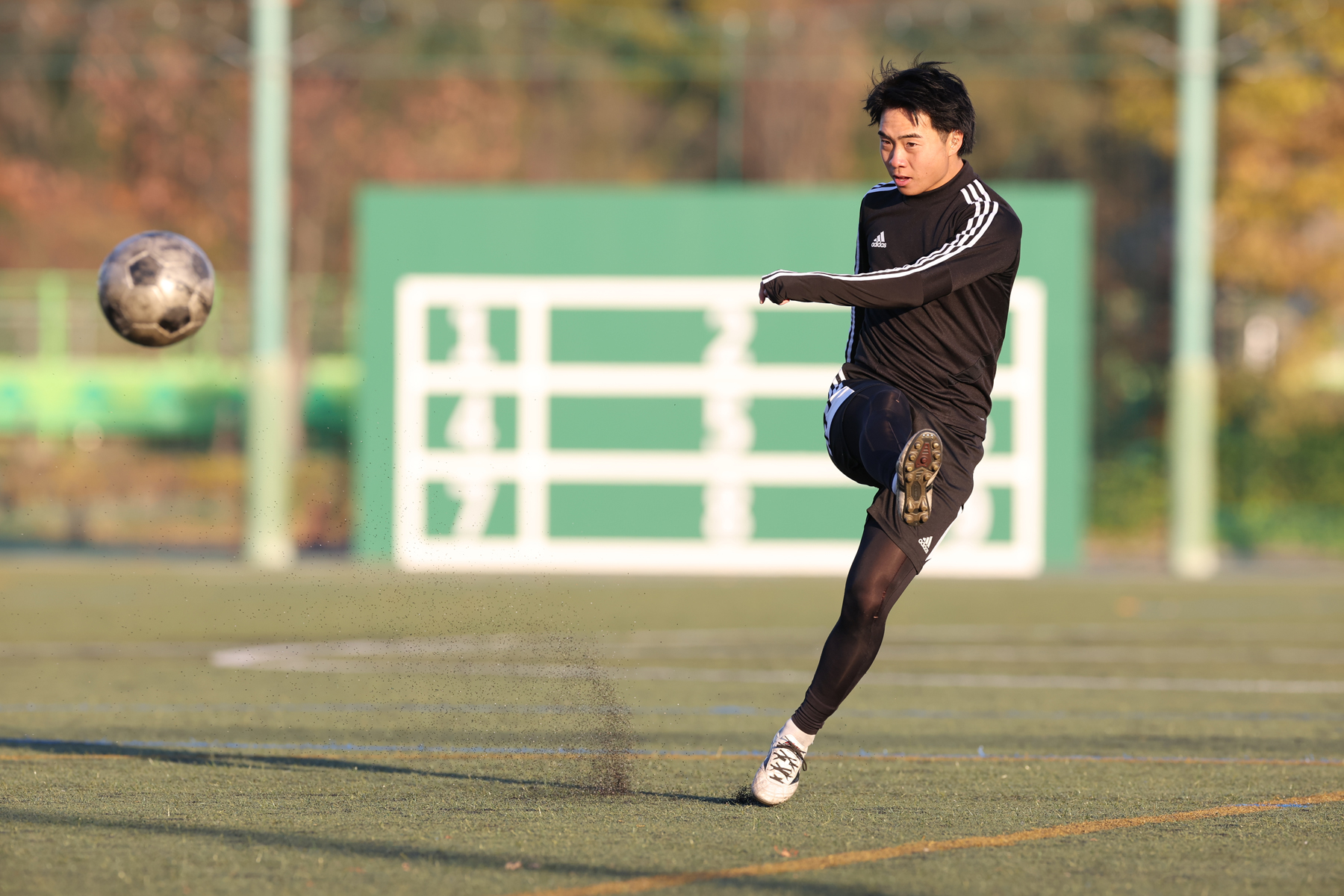
Instagram:takuya.10_official(https://www.instagram.com/takuya.10_official/)
text by Moritaka Ohashi
photographs by Kiyoshi Sakamoto


